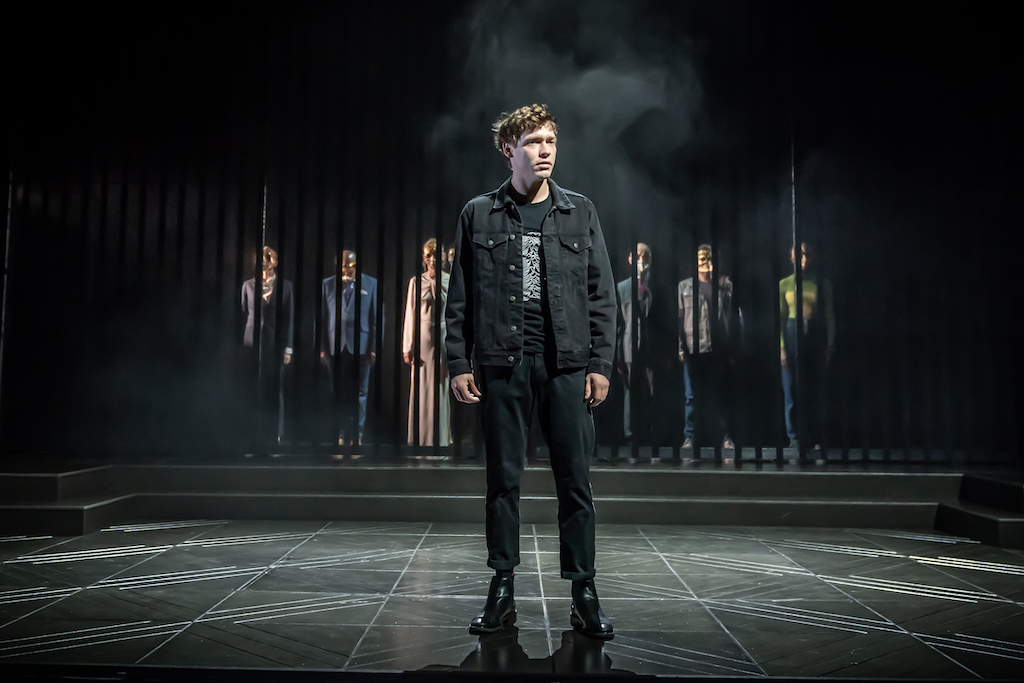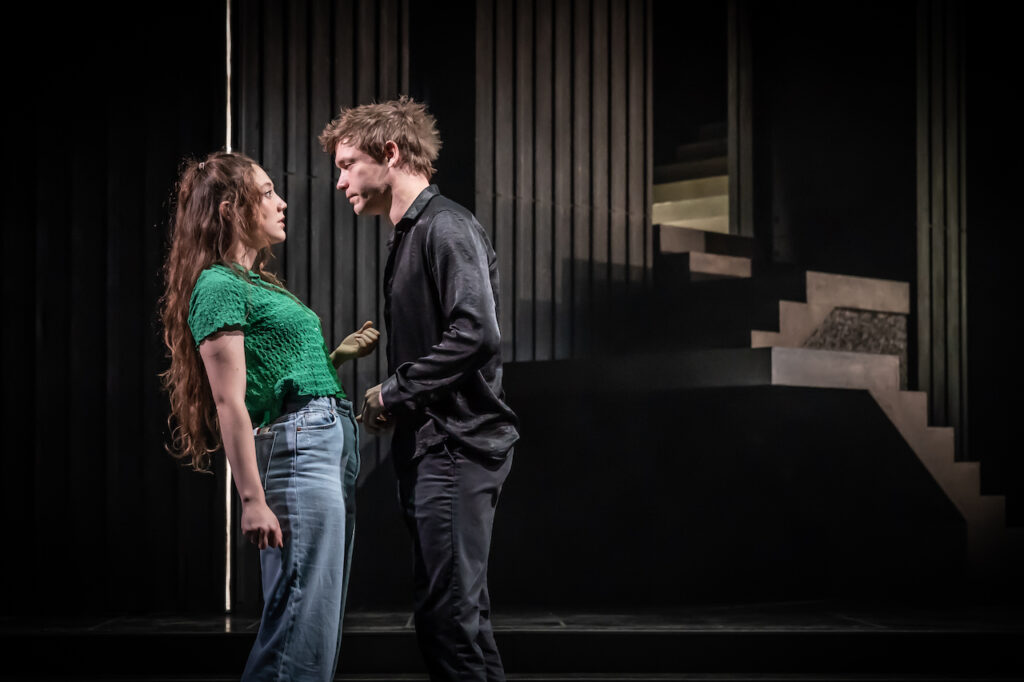
13 October – 12 November
What should a good man do in a world gone bad? Directed by John Haidar with breathless pace and fierce intensity, this Hamlet succeeds magnificently in presenting that old dilemma in a production that is both fresh and, at times, surprising, yet one that is entirely faithful to the spirit of the original. A complete Hamlet features a cast of thirty or so, and can take more than four hours to perform, but here we encounter fifteen roles played by a cast of just nine actors, and the running time is an audience-friendly three hours, including interval. Inevitably such economising involves sacrifices and this slimmed-down version lacks the breadth of the complete text, but the idea that Hamlet is essentially a familial tragedy is brought into sharp focus. Modern dress and a complete lack of courtly pomp and grandeur emphasises this domestic aspect of the play. Jack Phelan’s video projections remind us that Hamlet is haunted by memories of a happy childhood, and Alex Eales’s towering set, composed of anonymous walls of blackness pierced only by doors and staircases that appear to lead nowhere, underpins a sense that he is imprisoned in a place where there is no escape from other people, and no escape from one’s own inner demons.
Billy Howle is mesmerising in the title role, depicting a young man scarcely able to keep a lid on his emotions, driven to near madness by the realisation that he can no longer trust anyone including, crucially, himself. He delivers the well-known soliloquys as if they have newly sprung unbidden from his troubled mind. His distrust and general loss of faith in others is displayed most vividly in his cruel treatment of Ophelia.

In a spirited, intelligent characterisation, Mirren Mack is an Ophelia who is the only truly innocent character in a world gone rotten. In contrast, her father is a pompous schemer. Jason Barnett delivers that pomposity with great comic skill, but his Polonius is no harmless busy-body, and we see that he is a devious manipulator in a court where unprincipled machinations have become the order of the day.

That court is led by a Claudius who could in appearance be a businessman or bank manager, portrayed by Finbar Lynch entirely without kingly flamboyance. He might seem too buttoned-up, but this is a man who is hiding dark secrets inside his smart grey suit. He embodies the everyday banality of systemic corruption. His manner towards Gertrude is not grandiosely passionate, but his very ordinariness makes his feelings for her seem all the more real. Niamh Cusack movingly depicts Gertrude as a woman torn between loyalty to her new husband and love for her much-troubled son, an inner conflict revealed very powerfully and with startling physicality in the great closet scene. Among the other roles, all of which are performed well, Firdous Bamji is outstanding both as the Player King and Gravedigger, and Isabel Adomakoh Young is a very affecting Horatio.
This Hamlet offers much to engage even those who are very familiar with every line. It is packed with inventive ideas, while avoiding the pitfalls of mere gimmickry. There is perhaps one startling coup de théȃtre which some traditionalists might baulk at, but such risk-taking breathes new life into old favourites. So whether you have seen more productions of Hamlet than you care to remember, or you are a relative newcomer to this great play, this is a must-see show.
★★★★☆ Mike Whitton, 20th October, 2022
Photo credit: Marc Brenner


